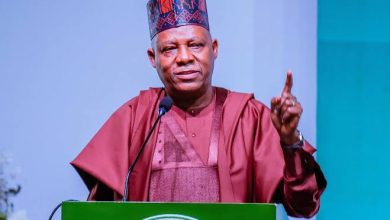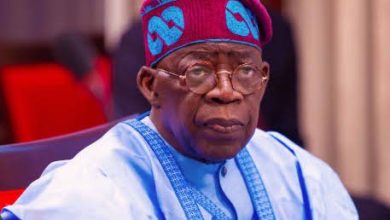NIGERIA ATTORNEY GENERAL AND MINISTER OF JUSTICE, PRINCE FAGBEMI, COMMENDS PRESIDENT TINUBU FOR SETTING UP EDUCATION LOAN FUND.

The Attorney General and Minister of Justice, Prince Lateef Fagbemi has commended President Bola Ahmed Tinubu’s administration for its commitment to education, through initiatives like the Nigerian Education Loan Fund (NELFUND).
According to him NELFUND has already begun to impact the education sector positively by granting over 351,000 loans worth N84.2 billion as of September 2024.
The scheme, is a testament to the government’s efforts to make education accessible to all, regardless of socioeconomic background.
Delivering the convocation lecture titled “Nurturing Democratic Values and Education for the Future of Nigeria,” at the 39th Convocation of the University of Ilorin, Fagbemi highlighted the role of education as a key pillar in advancing democracy, fostering social cohesion, and promoting national unity.
Fagbemi noted that education plays a crucial role in nation-building, stating that “a well-educated citizenry fosters stability, social cohesion, and progress.”
He encouraged graduates to reflect on how they can contribute to the development of their communities and the country at large, urging them to adopt the mindset of service to the nation rather than focusing solely on personal gains.
Fagbemi cited former U.S. President John F. Kennedy’s famous words: “Ask not what your country can do for you—ask what you can do for your country.”
The Attorney General also expressed the role of education in upholding human rights, stating that all educated individuals share the responsibility to advocate for justice and equality.
Prince Fagbemi argued that education equips citizens with the tools needed to actively engage in democratic processes, ensuring that leaders are held accountable.
The Attorney General further called for reforms in Nigeria’s educational system, advocating for improved infrastructure, teacher training, and inclusive policies that address the needs of marginalized populations, such as girls, children from low-income families, and people with disabilities.
Fagbemi emphasized that achieving gender equality in education is crucial for the country’s democratic growth, highlighting the need to break down barriers that hinder girls’ access to education.
He decried the challenges facing Nigeria’s education system, including political interference, corruption, and inequality in access to education, particularly in economically disadvantaged regions.
The Attorney General urged the government to create policies that foster inclusivity and democratic values within the education system, stressing that “education is not just about individual success; it’s about building a prosperous and democratic society.”
Prince Fagbemi however, called for Nigeria to emulate countries like South Africa and Singapore by integrating civic education into the curriculum, promoting critical thinking, and empowering teachers to adapt their teaching strategies to the needs of their students.
Fagbemi emphasized that a reformed education system, which ties economic progress to democratic governance, is essential for Nigeria’s long-term success.


